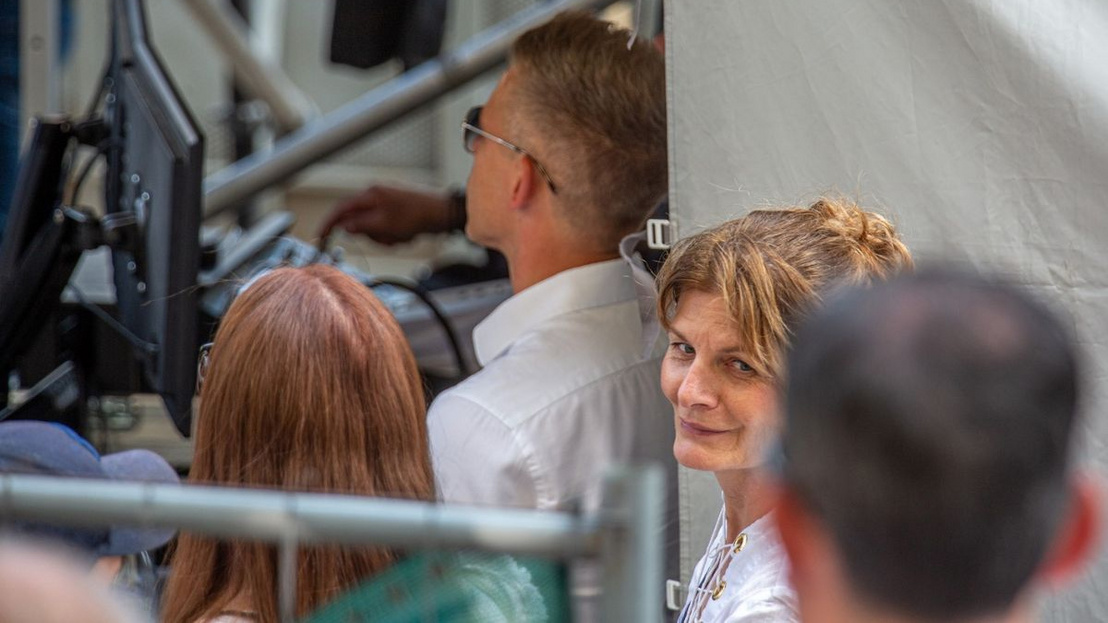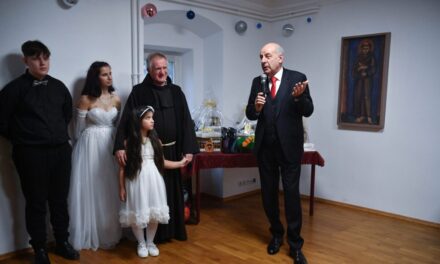S. Mária, who appeared alongside the Tisza Párt vice-chairman, who is Péter Magyar's economic manager and head of the secretariat, was indeed convicted six years ago for fraud and falsification of private documents.
The court sentenced him to three years in prison, not four, which he had to serve in a prison. S. Mária in the XXI. he was a regular defendant in the criminal case, in which the perpetrators collected more than eight billion forints, but barely paid back one and a half billion in the form of capital or interest.
Metropol reported on Monday that , according to their information, Péter Magyar's economic manager and head of the secretariat, S. Mária, spent four years in prison for pyramid scheme and was only recently released from there. The vice president of the Tisza Party responded to the newspaper's claims in a Facebook post. He wrote that the newspaper "published a vile disparaging article about my girlfriend's mother, who does not respect even the deepest parts of private life, who otherwise does not hold any position in the Tisza Party and, unlike the Fidesz oligarchs and political criminals, supports her family with a decent job" . He added: "the lady being dragged by the vile propagandists is not a public figure. All I can say about her is that she is a proud mother with 3 children, one of whom is a world champion water polo player who is currently preparing for the Paris Olympics".
In the second instance, the sentence was reduced
was sentenced to three years in prison for the crime of fraud committed continuously as an accomplice, as well as the crime of forgery of private documents, according to the final judgment of the Capital Court on June 6, 2018 verdict of the Capital Court announced on June 26, 2017 , which is the XXI. The defendant was sentenced to .
The economic leader of Péter Magyar spent four years in prison, beating 1,200 people
In the case of S. Mária, the second-instance court significantly reduced the first-instance verdict:
• reduced the amount of imprisonment,
• eased the level of enforcement,
• omitted to establish the commission of a crime in a criminal organization,
• also provided for the earliest date of conditional release.
Sándor Pintér's name was misused
On November 20, 2012, broke out , the mastermind of which was one of the Nagykáta twins, FA, who is also well-known in the celebrity world. According to the investigation data at the time, the suspects took sums ranging from one million to ten million forints, and
the victims were made to believe that after their investment they would receive 30 percent interest per month above fifty million forints and 20 percent below.
The suspects also misused the name of Sándor Pintér, as they repeatedly referred to the Minister of the Interior as their good relationship in order to make the offered business opportunity even more attractive.
The defendants denied the allegations
In its indictment submitted on March 3, 2016, the City Prosecutor's Office charged FA and 28 of his associates with the crime of fraud committed in a business-like manner in a criminal organization, causing particularly great damage. The defendants in total
They caused HUF 8 and a half billion in damage.
According to the indictment, from the end of 2010, FA pretended to be a successful broker with a good network of contacts in order to offer a high-yield, risk-free investment opportunity. He created a coordinated, pyramid-like criminal organization whose sole purpose was to get money from the people who talked to them.
The charge was fraud of almost three hundred orders, which caused particularly great damage, and was committed in a criminal organization. The defendants denied the accusations, the first-order defendant, FA, for example, defended himself by saying that the collected money was not invested, and that he passed it on to an unnamed person. And his colleagues referred to the fact that the money received for the investment was passed on to those above them in the organization, and thus they themselves became victims of the case.
According to the indictment, S. Mária was in direct contact with the first class defendant of the crime, with whom she spoke on the phone more than seven hundred times. But the biggest "catch" was also attached to his name:
defrauded one of the victims of HUF 108 million.
Irresponsibility of the victims
The Metropolitan Court of First Instance heard 450 witnesses and studied approximately 30,000 pages of investigative documents. In the case, the investigators also conducted secret information gathering and secret data acquisition. The presiding judge Krisztina Hajba asked the question in the justification of the verdict:
Where is the money?
Those involved collected more than eight billion forints, but paid back barely one and a half billion in the form of capital or interest. The network lured "investors" with interest rates of 10-30 percent, which was only paid to a few people at the very beginning of the pyramid scheme. No official contract was drawn up for the collected money, most of it was recorded without papers or "dressed up" as a loan contract.
The court of XXI. in the case of the accused, he assessed as an aggravating circumstance the fact that he continued the series of frauds even when several of his companions had already been arrested.
It was not by chance that the judge brought up the irresponsibility of the victims. In other words, the clients were apparently not at all interested in what they invested their capital in, what financial institution they had a contract with. They were not even bothered by the fact that the money was often handed over in bags in the parking lot of gas stations. By the way, they also used expensive decorations to deceive customers: the main defendants rented offices in the Bank Center and the EMKE office building.
Featured image: Metropol













